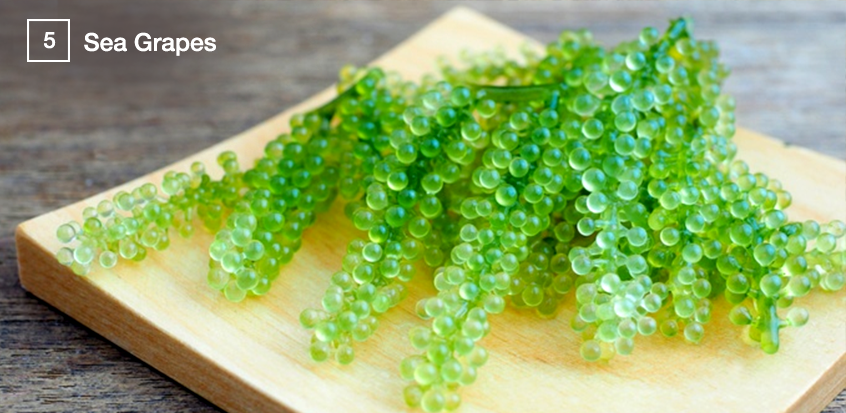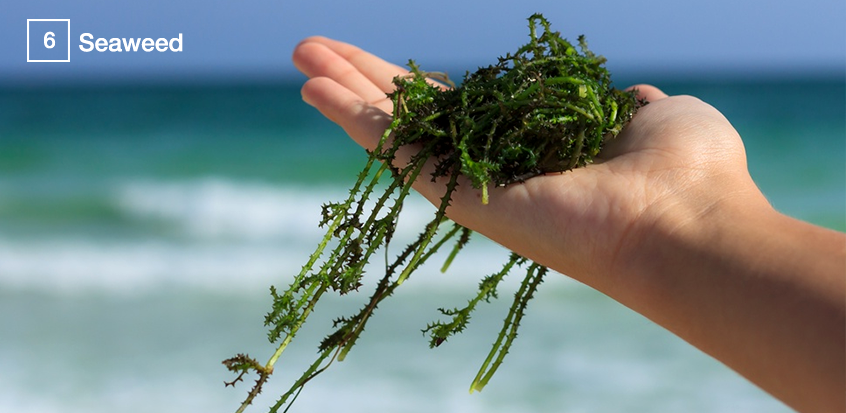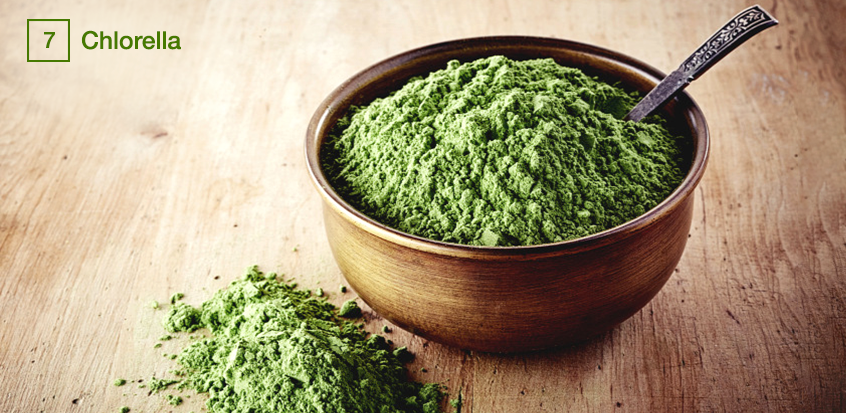Marine Ingredients are a Treasure Trove for Skincare

Did you know that the ocean is a treasure store of nutrients that are good for your skin? The sea is home to many strange and lovely species, as well as those that are simply terrifying.
Yes, we are aware that oranges are high in vitamin C and that tea tree is excellent for breakouts, but believe us when we say that marine elements like seaweed and sea grapes (who thought there was such stuff!?) are comparatively underutilized skincare superheroes that you need to be investing in.
We've dived in to learn about the most cutting-edge marine elements and the advantages they provide for our skin.

SEA KELP
This marine plant is a variety of brown seaweed that is incredibly abundant in proteins and minerals, including sodium, potassium, magnesium, and calcium.
This green component can do everything when it comes to skincare. Sea kelp enters the skin and eliminates toxins since it is rich in antioxidants, giving skin a younger-looking appearance. The harm brought on by regular skin wear and tear can be repaired by sea kelp.
The free radicals that accelerate skin aging are eliminated by the iodine in sea kelp. In addition, the high nutritional content of sea kelp helps promote hair development by strengthening and nourishing the hair. It is, in essence, the most nutrient-rich seaweed species, making it a fantastic start to begin your marine skincare adventure.
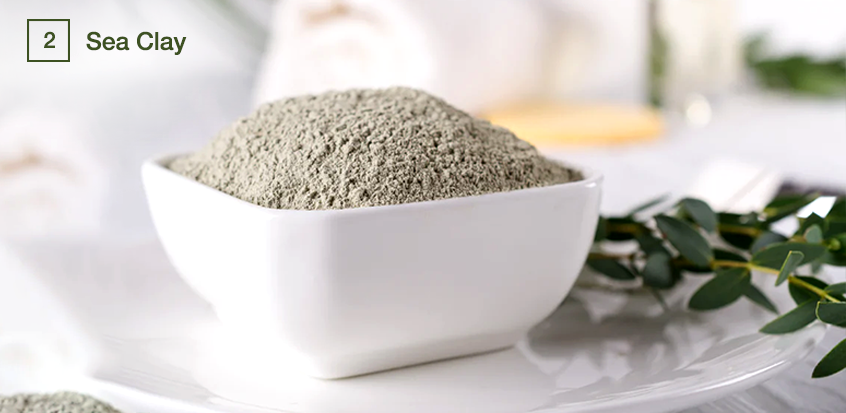
SEA CLAY
Sea clay is a traditional component of the face and body masks because of its mineral-rich nature. Derived from the sea bottom, this clay removes pollutants while also nourishing and moisturizing the skin. The sea clay works as a gentle defoliant and is thought to aid in the reduction of cellulite. When used as a hair mask, sea clay keeps the hair smooth and free of additional oil.
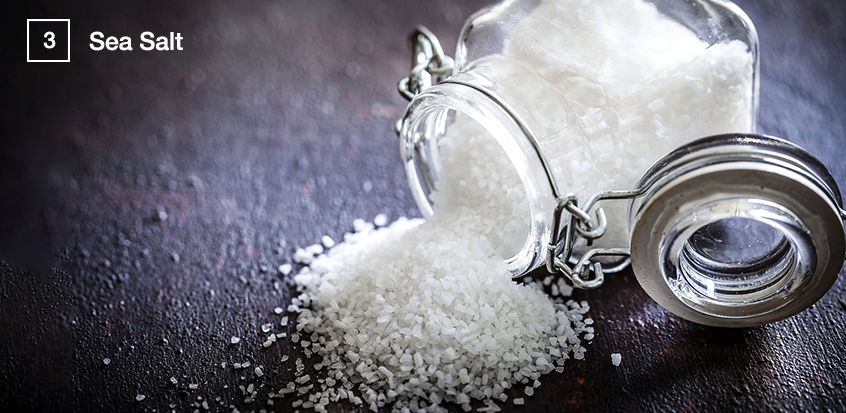
SEA SALT
Sea salt, which is rich in electrolytes and other minerals, is used as a natural scrub to remove dirt and debris from the skin. Due to its absorption capacity, sea salt is widely used as a bath salt to remove toxins from the body and detoxify the skin from the inside out. The mineral composition of sea salt aids in retaining moisture and restores the skin's barrier of defense.
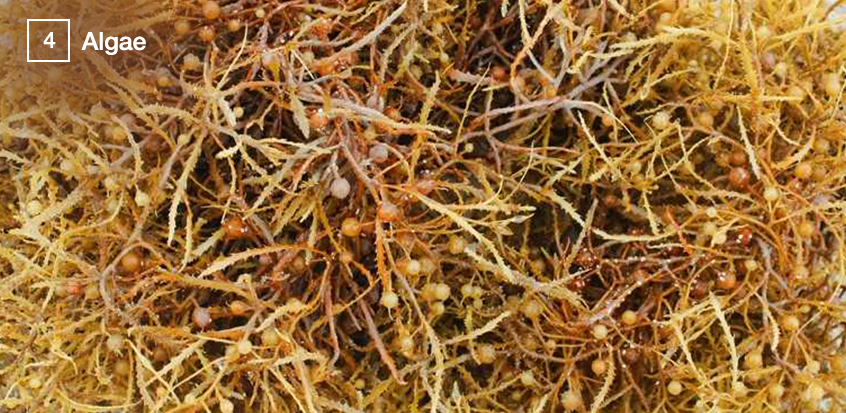
ALGAE
Marine algae are divided into two categories: macroalgae (kelp and seaweed) and microalgae (microscopic, single-cell organisms). They also contain emollient, antioxidant, and antibacterial effects. Algae is a preferred component for face masks, eye creams, moisturizers, and lotions because it is rich in vitamins and minerals, hydrating the skin while tightening and purifying it, and has other skin-loving properties. Green algae promote the formation of collagen and maintain the health of elastin, while red algae are praised for their healing abilities.
SEA GRAPES
Who knew the sea included grapes? Sea grapes, often referred to as green caviar, are a kind of small, green plant that belongs to the algae family. Their name comes from their spherical shape, which develops in little bunches.
Caviar, one of the most costly delicacies on the planet, is renowned for giving the skin unmatched nutrients. Applying caviar to the skin can help to promote luminous, young, and healthy skin since it is rich in omega 3, omega 6, fatty acids, proteins, and minerals. The caviar protein acts at the cellular level to repair the skin and enhance its texture.
Additionally, caviar encourages the skin's own collagen synthesis, which helps to fill up the face and reduce the appearance of wrinkles. As most celebrities swear by caviar extract as the best anti-aging quick cure, caviar-based skincare products are becoming more well-known.
SEAWEED
It might be perplexing since there are so many different kinds of seaweed, but overall, seaweed is really good for our faces because it is naturally high in iodine, minerals, salts, and vitamins.
It is humectant-rich and high in vitamin E, both of which assist to nourish the skin. Humectants are substances that attract moisture into the skin and retain it there. All skin types can benefit from it, but oily and combination skin, in particular, will love it because of its balancing features, which keep your skin nourished without feeling greasy.
CHLORELLA
Chlorella is a marine component that can improve the appearance of your skin and is yet another type of algae that is wonderful for your skin. This substance is abundant in vitamins, iron, and zinc in addition to being high in chlorophyll, which, if you recall from high school science, is the component that gives plants their green color. Chlorophyll also has significant antioxidant properties. Zinc soothes irritability while vitamin C brightens, resulting in whole healthy, bright skin when used in skincare products.
Ocean resources are so abundant. There might be a huge number of other components that we haven't even begun to identify.
Do you have any more knowledge of skin-friendly marine-based ingredients? Comment below with your answer and let us know!
You May Also Like:
- Best Essential Oils for Face Steaming
- Upgrade Your Makeup Treasure With Our New Launches
- Best Essential Oils for Bruises
- Essential Oils for Constipation Relief
- Essential Oils for Acne Scars
- Essential Oils for Dry Skin
- Trendy Skincare Ingredients 2022
- Private Label Cosmetic Industry India
- Topmost Private Label Skincare Manufacturers

